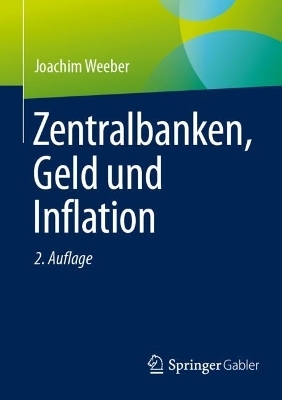
The Egyptian Economy in the Twenty-first Century
American University in Cairo Press (Verlag)
978-1-64903-177-8 (ISBN)
The Egyptian Economy in the Twenty-first Century addresses the question of why Egypt, despite possessing a plethora of assets—such as a fertile agriculture, a strategic geographic location, oil and gas deposits, innumerable tourist sites, a labor force prized by regional countries, and a diaspora that remits large amounts of funds—has seldom performed to its economic potential during the last sixty years. Indeed, economic weakness created political weakness, and often exposed the country to foreign diktats. What should the country do to change this state of affairs?
Nineteen internationally recognized authorities on the Egyptian economy discuss the critical challenges that the Egyptian economy is likely to face in the next two to three decades, challenges which must be overcome in order to improve the life of Egypt’s citizens and to protect the country from external pressures. Their analyses cover population and employment; development strategies; principal macroeconomic issues; development of a digital economy; fiscal and monetary matters; the external sector; poverty and income distribution; the enterprise structure; higher education; water availability; urbanization; institutional performance; and many others.
Contributors:
- Gouda Abdel Khalek, Cairo University, Cairo, Egypt
- Khaled M. Abu-Zeid, Regional Water Resources, CEDARE (Center for Environment and Development for the Arab Region and Europe), Cairo, Egypt.
- Fatma El Ashmawy, World Bank.
- Ragui Assaad, University of Minnesota, Twin Cities of Minneapolis and Saint Paul, Minnesota, USA
- Izak Atiyas, Economic Research Forum, Cairo, Egypt.
- Marwa Biltagy, Cairo University, Cairo, Egypt.
- Lahcen Bounader, International Monetary Fund.
- Ishac Diwan, École Normale Supérieure, Paris, France.
- Ahmed Ghoneim, Cairo University, Cairo, Egypt.
- Khalid Ikram, Washington DC, USA.
- Karima Korayem, al-Azhar University, Cairo, Egypt.
- Heba el-Laithy, Cairo University, Cairo, Egypt.
- Noha el-Mikawy, Ford Foundation, Middle East and North Africa, Cairo, Egypt.
- Mohamed Mohieddin, Menoufia University, Menoufia, Egypt.
- Heba Nassar, Cairo University, Cairo, Egypt.
- Osman Mohamed Osman, Cairo, Egypt.
- Noha Razek, University of Regina, Regina, Saskatchewan, Canada.
- David Sims, Cairo, Egypt.
- John Waterbury, Princeton, New Jersey.
Khalid Ikram has been associated with Egypt’s economy for more than forty years, including as director of the World Bank’s Egypt department. His international consultancies include governments, the World Bank, the Asian Development Bank, USAID, DFID, ITZ, OECD, UNCTAD, UNDP, and leading private institutions. He is the author of Egypt: Economic Management in a Period of Transition (1981), The Egyptian Economy, 1952–2000: Performance, Policies and Issues (2006), and The Political Economy of Reforms in Egypt: Issues and Policymaking since 1952 (AUC Press, pbk edition, 2021). His awards include the Korean President’s medal for services to Korean development. Heba Nassar is professor of economics at the Faculty of Economics and Political Science and former vice-president of Cairo University. She is also chief editor of the Review of Economics and Political Science and currently directs and has participated in research projects for leading private and international institutions, including the World Bank, UNDP, UNIDO, ILO, and the Ford Foundation. The author of several articles and books, she received in 2021 the Egyptian state’s Women’s Appreciation Award from the Academy for Scientific Research and Technology.
Note on Contributors
List of Figures and Tables
Preface
Acknowledgments
Introduction
Khalid Ikram
Part 1: The Human Factor
1. Prospects for Egypt’s Population and Labor Force: 2000 to 2050
Ragui Assaad
2. The poverty trap: Why is it Persisting in Egypt?
Osman Mohamed Osman and Heba El Laithy
3. Urbanization in Egypt
David Sims
4. Street Children in Egypt: Principal Causes and Economic Cost
Karima Korayem
5. Is Egypt’s Higher Education System Broken?
John Waterbury
6. Water Challenges and Recommended Policies
Khaled Abu-Zeid
Part 2: Development Strategies
7. The “Trickle-down” Approach: Its Relevance to The Case of Egypt
Gouda Abdel-Khalek
8. Human Resource Competitiveness and the Digital Economy
Heba Nassar and Marwa Biltagy
9. The “Missing Middle” in Egypt’s Enterprises and Its Impact on Economic Growth
Izak Atiyas and Ishac Diwan
Part 3: Drivers and Policy Instruments
10. The External Sector: Performance and Issues
Ahmed Ghoneim
11. The Natural Gas Sector: Opportunities and Challenges
Noha H.A. Razek
12. Fiscal Policies and Issues
Fatma El Ashmawy
13. Monetary Policy in Egypt: Medium- and Long-term View
Lahcen Bounader
Part 4: Institutional Development
14. Institutional Constraints and Opportunities
Noha El-Mikawy and Mohamed Mohieddin
| Erscheinungsdatum | 03.09.2021 |
|---|---|
| Zusatzinfo | 103 charts & graphs and 47 tables |
| Sprache | englisch |
| Maße | 152 x 229 mm |
| Themenwelt | Sozialwissenschaften ► Politik / Verwaltung ► Staat / Verwaltung |
| Wirtschaft ► Volkswirtschaftslehre ► Makroökonomie | |
| Wirtschaft ► Volkswirtschaftslehre ► Wirtschaftspolitik | |
| ISBN-10 | 1-64903-177-7 / 1649031777 |
| ISBN-13 | 978-1-64903-177-8 / 9781649031778 |
| Zustand | Neuware |
| Haben Sie eine Frage zum Produkt? |
aus dem Bereich


